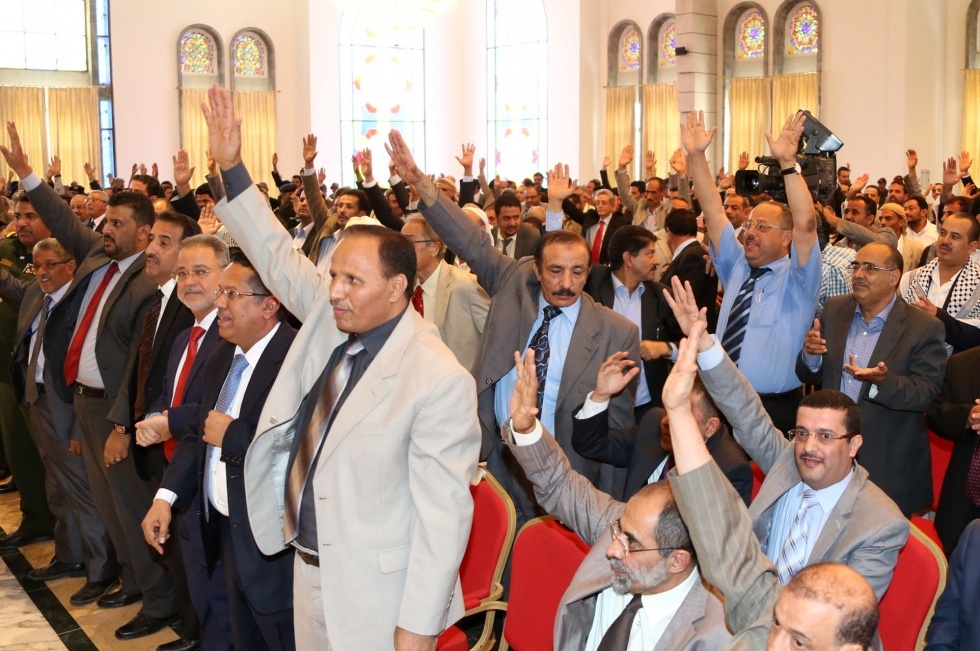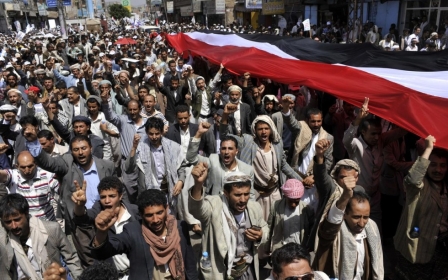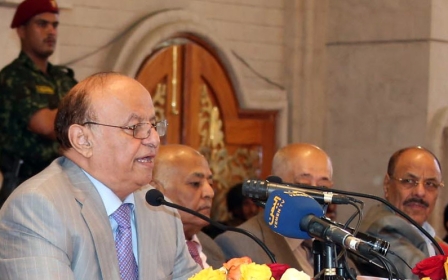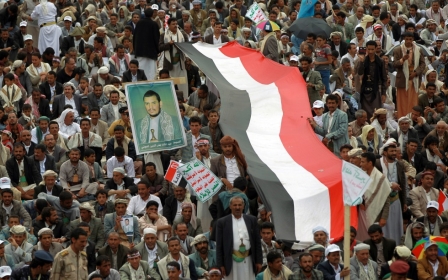Yemen's Houthis reject presidential initiative

Yemen's Shiite Houthi group on Tuesday rejected an initiative tabled by President Abd Rabbuh Mansur Hadi, which called for sacking the government and drawing up a new national unity government within one week.
In a statement on his official Facebook page, Houthi spokesman Mohamed Abdel-Salam said Hadi's initiative was an attempt to "evade the Yemeni people's demands."
Earlier in the day, Hadi said he had decided to sack the government and reduce fuel prices – two core demands voiced by tens of thousands of Shiite Houthi demonstrators who have been staging countrywide rallies since last month.
Hadi's decisions were based on the recommendations of a committee formed by the president to mediate a solution to the political crisis that has gripped the country since mid-August.
According to the initiative, the president has the right to appoint the heads of "strategic" ministries, which include the ministries of interior, defense and foreign affairs.
The president also called on the Shiite Houthi group – along with southern separatist groups – to take part in a new government of national unity.
The initiative comes only one day after Houthi activists blocked main roads in capital Sanaa, vowing to further escalation.
Earlier confrontations in the country's north between the Houthis and Yemeni army troops have left hundreds dead and injured on both sides.
IMF sets $553 million loan for Yemen
Meanwhile, the International Monetary Fund on Tuesday approved a $553 million loan for Yemen to help the struggling country stabilize its finances and boost growth.
The three-year loan aims to support the Yemen government in implementing a package of reforms.
The reforms are also focused on the politically difficult plan to eliminate large fuel subsidies in order to reduce a drain on the state budget.
"A first step in this direction has already taken place and will be complemented by well targeted social transfers to the poor," the IMF said.
"Additional fiscal measures will aim at reducing the budget deficit over the medium term by reforming the civil service and improving tax compliance."
The announcement of the new program, with a first disbursement of about $74 million, came as Hadi agreed to the demands of the Shiite Huthi rebels to cut back a fuel hike set in July by 30 percent, and to shake up the current unity government.
Yemen has been gripped by turmoil since the 33-year rule of autocratic president Ali Abdullah Saleh ended in 2012 following mass protests that came as part of the region's "Arab Spring" uprisings.
From 2004 to 2010, the Houthis waged six wars against the Yemeni army, which was backed by forces from Saudi Arabia. Following the revolution that ousted Saleh, the Houthis opened new fronts against other enemies, including local tribes, Yemen's Muslim Brotherhood and the Salafists of Saada.
Since 2012, the Houthis have opposed anyone who has challenged their ideology, making enemies of the tribes of Al-Jawf that supported the army in the latter's fight against the Shiite militant group.
Some Yemenis talk of a "hidden alliance" between the ousted president and the Houthis, claiming that a number of figures associated with Saleh's party had appeared to support the Shiite movement when it attacked Amran.
New MEE newsletter: Jerusalem Dispatch
Sign up to get the latest insights and analysis on Israel-Palestine, alongside Turkey Unpacked and other MEE newsletters
Middle East Eye delivers independent and unrivalled coverage and analysis of the Middle East, North Africa and beyond. To learn more about republishing this content and the associated fees, please fill out this form. More about MEE can be found here.




